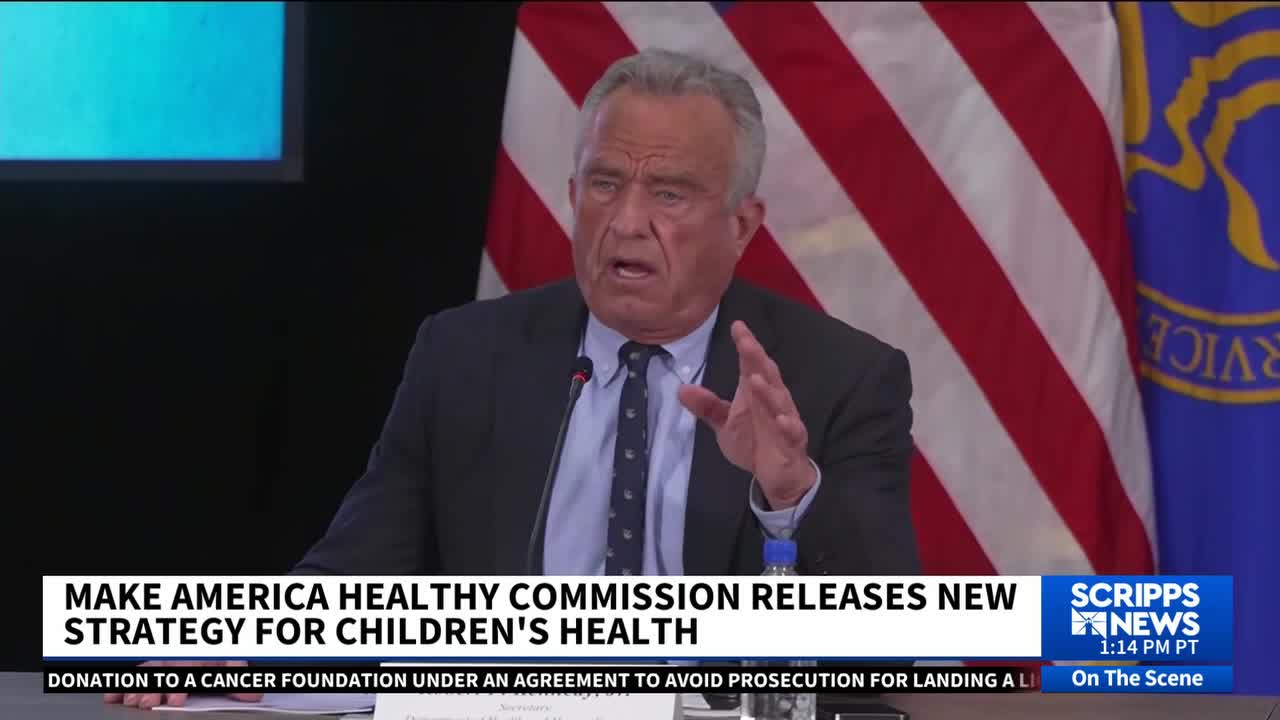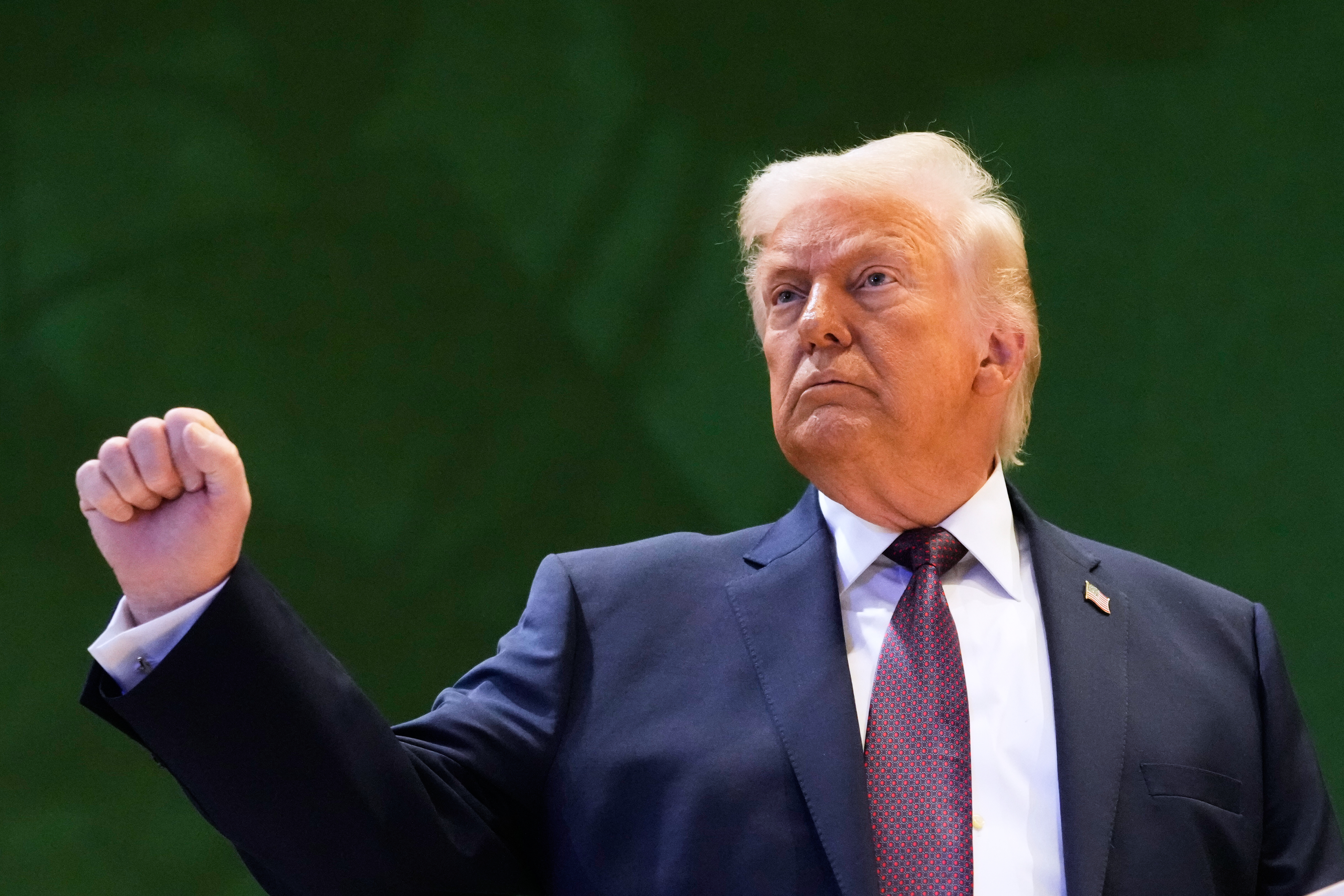Health and Human Services Secretary Robert F. Kennedy Jr. on Tuesday released a new report from his Make America Health Again (MAHA) Commission attributing things like poor diet, exposure to toxic chemicals, lack of physical activity, and "overmedicalization" as key drivers behind growing chronic illness in American children.
“The Trump Administration is mobilizing every part of government to confront the childhood chronic disease epidemic,” Kennedy said in a statement obtained by Scripps News. “This strategy represents the most sweeping reform agenda in modern history—realigning our food and health systems, driving education, and unleashing science to protect America’s children and families. We are ending the corporate capture of public health, restoring transparency, and putting gold-standard science—not special interests—at the center of every decision.”
IN RELATED NEWS | RFK's MAHA report on youth health angers scientists and skeptics alike
The report address everything from pesticides, processed foods, the use of prescription drugs, and television advertising practices by the food industry that target children. It proposes several responses to childhood health, including:
- advancing research into the causes and solutions to these problems
- policy reforms to address specific problems related to childhood health
- deregulation of certain industries and agency restructuring
- creation of the Administration for Healthy America (AHA) to address chronic disease
- a new public awareness campaign to inform Americans on some of the report's findings
However, the report does not call for significant changes to regulations or a ban on some chemicals, which some in the MAHA movement have floated the idea of in the past. But one area where there is expected to be concrete change is on direct-to-consumer pharmaceutical ads.
The report calls for increasing oversight of companies and social media influencers. Hours after the report was made public, President Donald Trump signed a memo calling for Secretary Kennedy to address "misleading direct-to-consumer prescription drug advertisements."
"The FDA has historically stipulated that a manufacturer, packer, or distributor must provide the public with materially complete information that fairly balances both the benefits and the risks of the drug," the memo states. "Over time, however, the FDA’s requirements have permitted drug companies to include less information, particularly in broadcast advertising, and drug manufacturer advertising has skyrocketed in recent decades. My Administration will ensure that the current regulatory framework for drug advertising results in fair, balanced, and complete information for American consumers."
IN CASE YOU MISSED IT | RFK Jr. in interview with Scripps News: ‘Trusting the experts is not science’
The latest MAHA report is a follow-up to Kennedy's assessment that was released earlier this year describing America's youth as the "sickest generation in American history." That assessment pointed to significant increases in childhood obesity, diabetes, cancer and mental health problems, suggesting policymakers have devoted too much time and money on medical treatments to such issues and too little on research into ways to prevent them.
It also called out corporate influence in environmental and epidemiological studies, as well as the significant role corporate lobbyists play in crafting federal legislation. However, it stopped short of offering any concrete solutions to improve children’s health and was subject to significant scrutiny as many of the studies cited within it were accused of being mischaracterized or fabricated using artificial intelligence.












